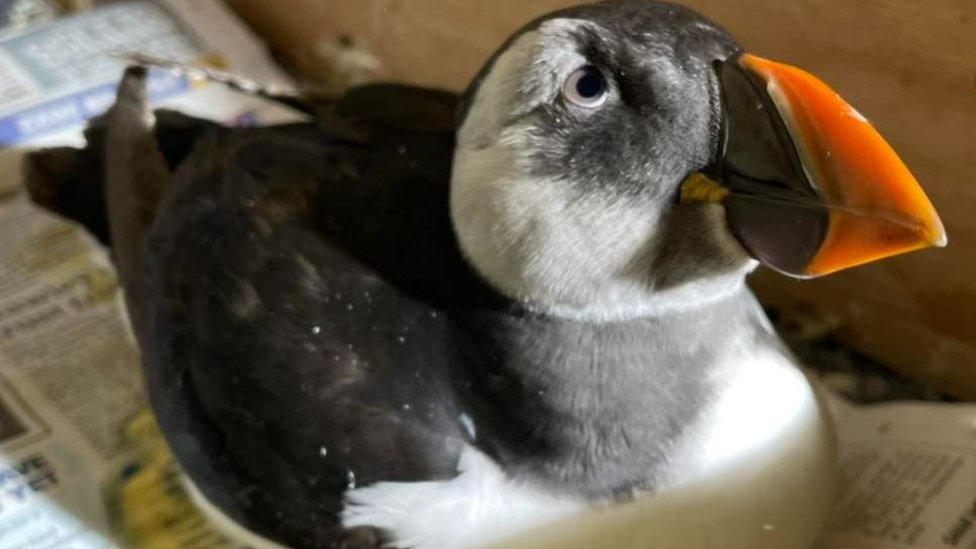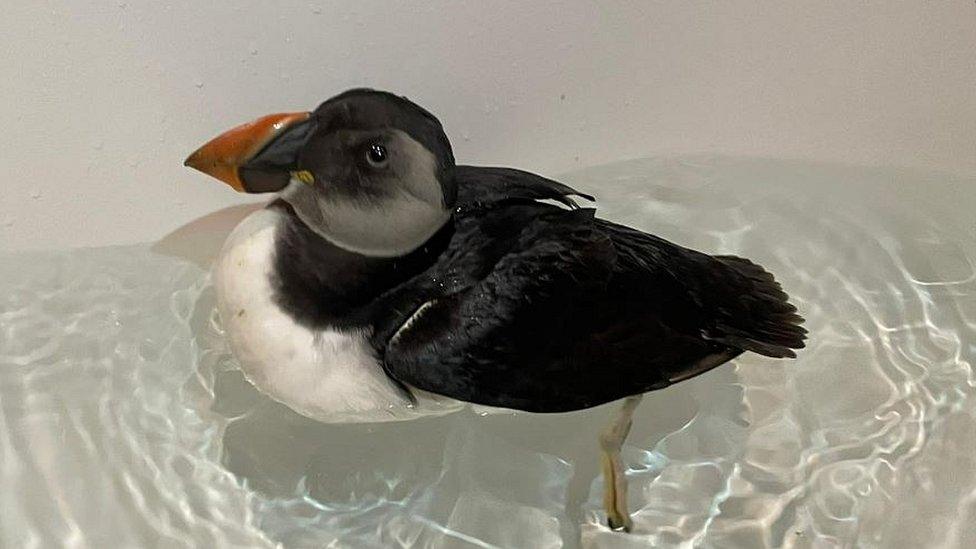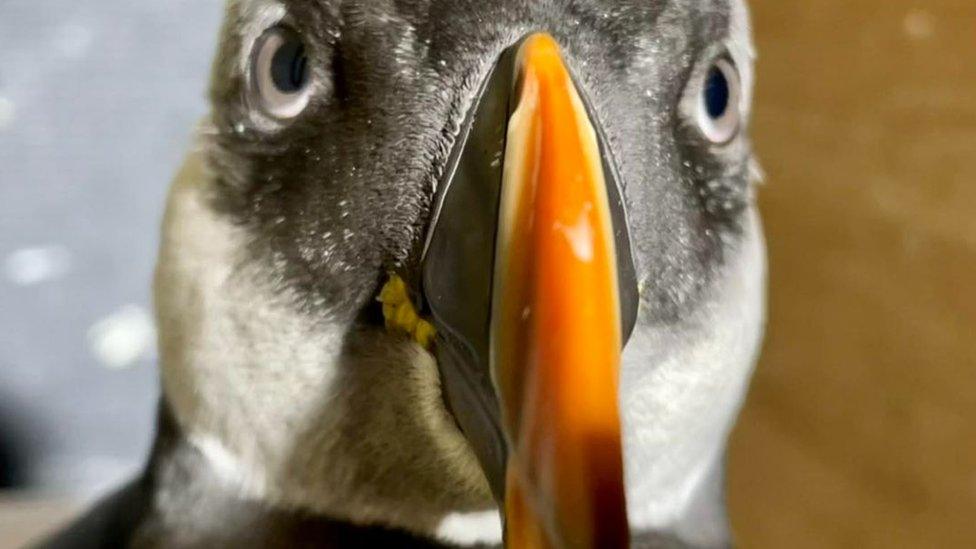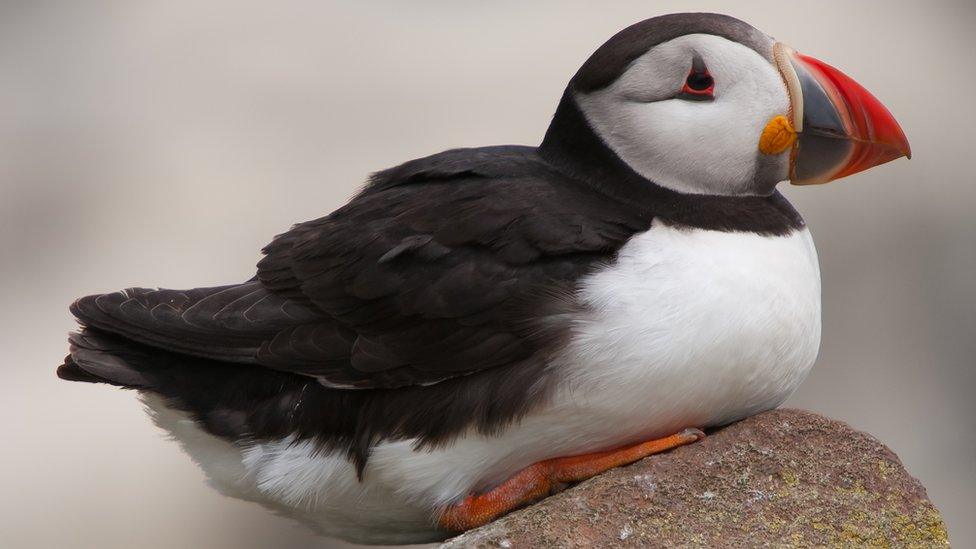Cleethorpes: 'Crash-landed' puffin rescued from building site
- Published

Rescuers said they thought the bird had become disorientated by noise and buildings
A puffin which was injured when it "crash-landed" into a building site in Lincolnshire has been saved by volunteers.
Cleethorpes Wildlife Rescue (CWR) said the "exhausted" bird, found on Wednesday, had suffered bruising in the incident at Grimsby docks.
Rescuers said the bird had been examined by a vet for other damage and had been given the all-clear.
Volunteers said they hoped to release the bird soon at RSPB Bempton Cliffs.

Volunteers have to bathe the bird every day to keep its plumage in good health
Rescuers said they thought the non-breeding young adult had become disorientated by the sudden noise and different shaped buildings.
There were fears the puffin had broken its wings, but X-rays taken by a local vet showed them to be undamaged.
Aaron Goss, co-lead rescuer for CWR, said: "We're having to let it float about in the bath each day so that it can keep its plumage healthy."
Mr Goss said there were still a few puffins at RSPB Bempton Cliffs in East Yorkshire and he hoped the bird would be released there soon.
"Otherwise it'll have to be Iceland," he said.

The bruised bird was given the all-clear by a vet and will be released when it has fully recovered, rescuers said
Puffins are often nicknamed "sea parrots" due to their colourful beaks and mannerisms.
Half the UK's puffin population can be found at only a few sites, including Bempton Cliffs in East Yorkshire and the Farne Islands, as well as Coquet Island off the Northumberland coast.
The UK holds about 10% of the world's puffins, but numbers are declining, and they are now on the Red List of UK Birds of Conservation Concern.
The birds usually spend their lives at sea, coming to land between March and August to breed, according to the RSPB.

Follow BBC East Yorkshire and Lincolnshire on Facebook, external, Twitter, external, and Instagram, external. Send your story ideas to yorkslincs.news@bbc.co.uk, external.
Related topics
- Published26 July 2022

- Published2 June 2020
